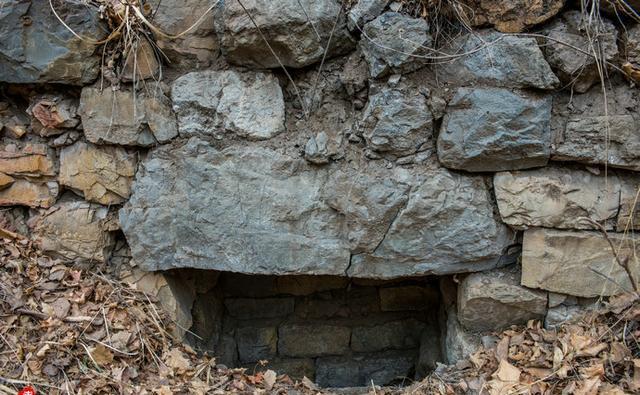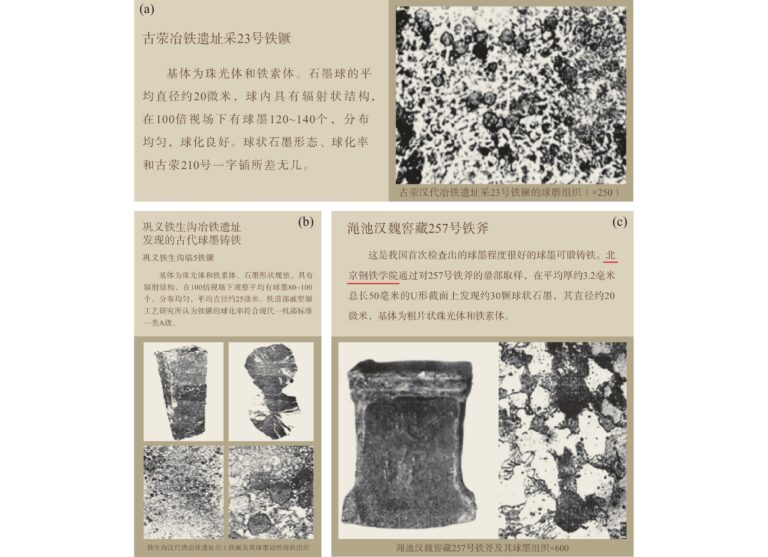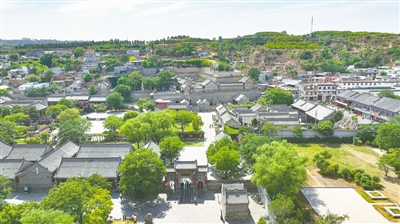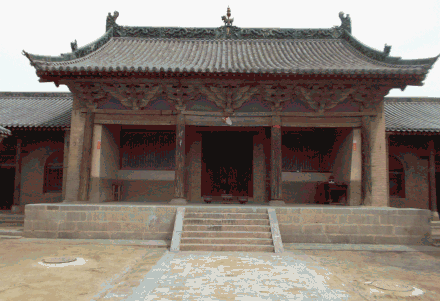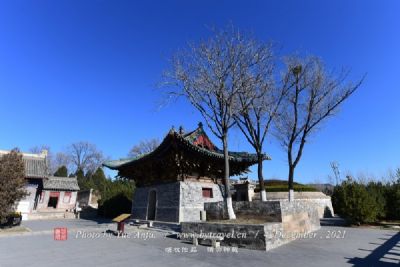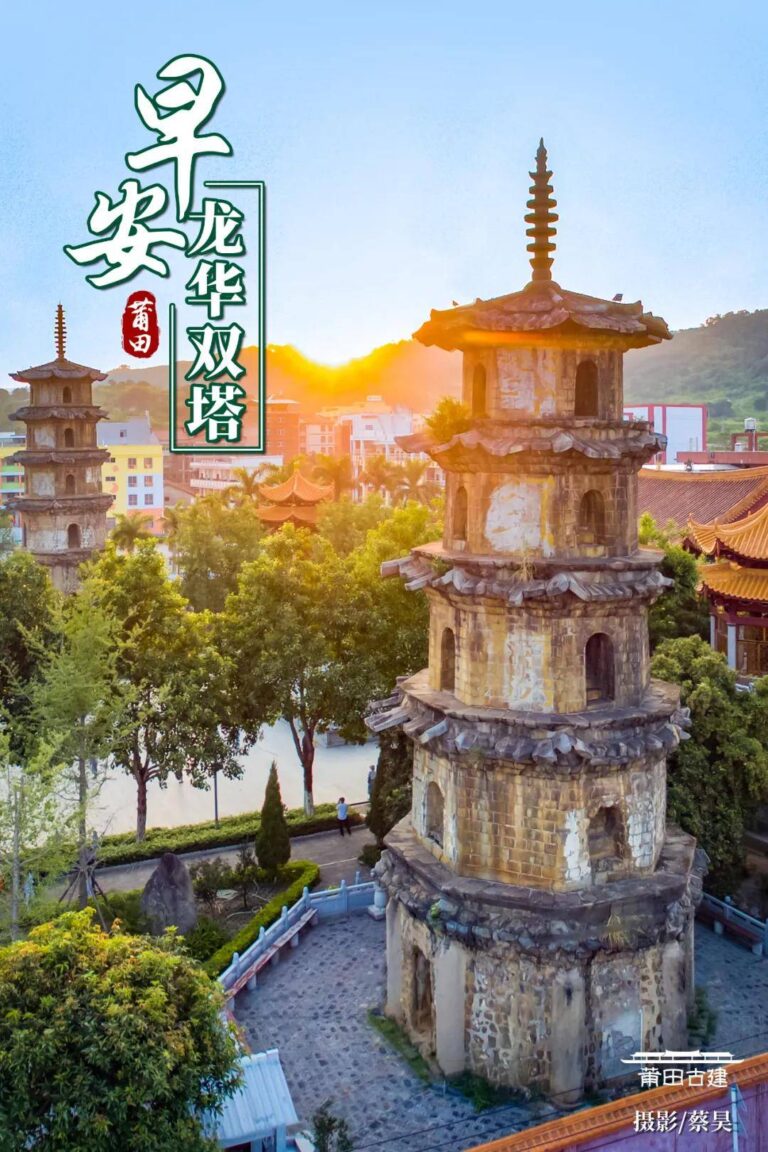Luzhou Yaoba Zhen Gujianzhuqun: A Journey Through Sichuan’s Unique Architecture
An Essential Guide to Visiting Luzhou Yaoba Zhen Gujianzhuqun
In This Guide
- An Essential Guide to Visiting Luzhou Yaoba Zhen Gujianzhuqun
- The Rich History of Luzhou Yaoba Zhen Gujianzhuqun
- Main Highlights: What to See at Luzhou Yaoba Zhen Gujianzhuqun
- Planning Your Visit: A Practical Guide
- Tickets, Hours, and Booking
- How to Get There
- Local Cuisine and Accommodation
- Frequently Asked Questions
- Final Thoughts on Your Trip
Nestled in the enchanting southwestern region of Sichuan Province, the ancient town of Luzhou Yaoba Zhen Gujianzhuqun offers a captivating glimpse into China’s rich historical tapestry. This hidden gem, often overshadowed by more prominent tourist destinations, boasts a remarkable collection of well-preserved traditional architecture and a serene atmosphere that invites exploration.
Yaoba Town, with its origins dating back to the Northern Song Dynasty, served as a vital stop along the renowned “Chuan-Qian Corridor,” facilitating trade and cultural exchange between Sichuan and Guizhou. Its unique geographical location has allowed it to flourish over centuries, transforming into a vibrant cultural hub. Today, visitors can stroll through its narrow cobblestone streets, flanked by charming gray-tiled houses that reflect the distinctive architectural style of southern Sichuan.
The town’s centerpiece, the East Yue Temple, is a stunning example of Ming Dynasty craftsmanship, adorned with intricate carvings and a majestic layout that captures the spirit of the era. As you wander through the 1,000-meter-long ancient street, you will encounter a harmonious blend of historical significance and local traditions, from quaint teahouses to family-run eateries offering delectable regional dishes.
For those seeking an authentic cultural experience, Yaoba is not just a feast for the eyes but also a thriving center for traditional craftsmanship. The town is renowned for its handmade oil paper umbrellas and local culinary delights, such as the famous red soup lamb. Whether you’re an avid historian, a foodie, or simply in search of tranquility away from bustling cities, Yaoba Town promises an enriching journey filled with discovery and wonder.
Embark on this adventure to uncover the stories etched in every corner of this ancient town, where the past seamlessly intertwines with the present, creating a unique narrative that beckons to be explored.
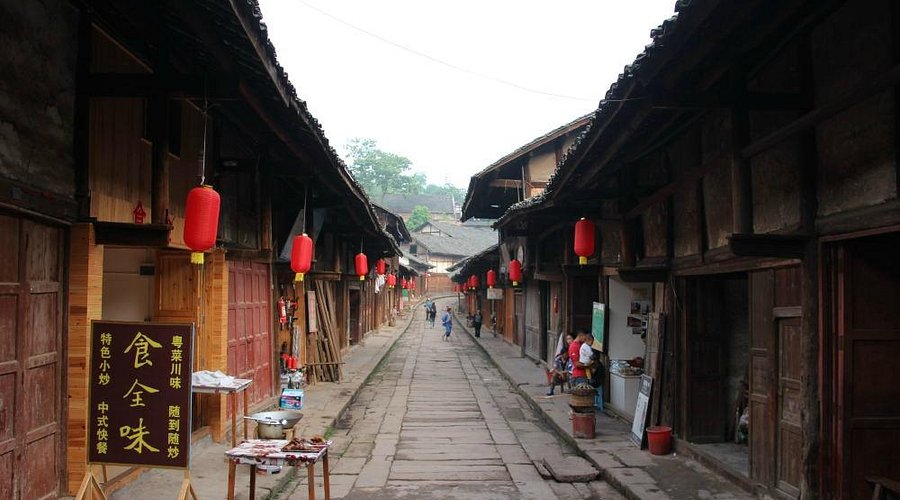
Luzhou Yaoba Zhen Gujianzhuqun.
The Rich History of Luzhou Yaoba Zhen Gujianzhuqun
Nestled at the confluence of Sichuan, Guizhou, and Chongqing, the ancient town of Yaoba boasts a rich tapestry of history that stretches back over a millennium. Founded during the Northern Song Dynasty, Yaoba began to flourish as a significant commercial hub in the Ming and Qing Dynasties, serving as a vital rest stop along the historic “Chuan-Qian Corridor” and “Tea-Salt Road.” These trade routes facilitated the movement of goods and culture between various regions, marking Yaoba as an essential link in the economic and cultural exchanges of ancient China.
The town is renowned for its well-preserved architectural ensemble, which reflects the quintessential characteristics of southern Sichuan residential styles. The streets, lined with traditional courtyard homes primarily from the Qing Dynasty and the Republic of China era, extend over 1,000 meters and house more than 2,000 structures. This architectural heritage has earned Yaoba the distinction of being referred to as a “living fossil” of ancient southern Chinese residential architecture, highlighting its historical significance and aesthetic appeal.
One of the most noteworthy structures within the town is the Dongyue Temple, which was originally built during the Ming Dynasty and has undergone several renovations throughout the Qing period. This temple exemplifies the intricate craftsmanship and religious devotion of the era, featuring a harmonious blend of architectural styles and exquisite carvings that showcase the artistic traditions of its time.
Throughout its history, Yaoba has also been a focal point for political and social activities. It was here that key events unfolded during the early years of the Chinese Communist Party, making it a site of revolutionary significance. In 1929, a local Communist branch was established, and in 1935, Yaoba played a strategic role in supporting the Red Army’s four crossings of the Chishui River.
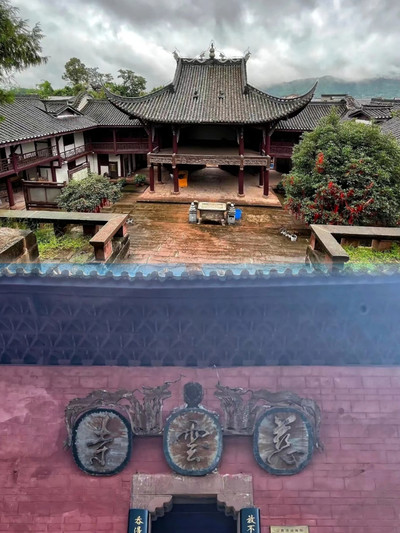
Luzhou Yaoba Zhen Gujianzhuqun.
The town’s historical streetscape is complemented by landmarks such as the Wang Chaowen Former Residence and the Ling Zifeng Film Exhibition Hall, which celebrate the legacies of prominent cultural figures. The presence of these sites not only enriches the town’s narrative but also serves as a reminder of its vibrant past.
Today, Yaoba stands as a testament to the endurance of history in contemporary life. Its tranquil environment and the harmonious lifestyle of its residents offer visitors a glimpse into a bygone era, making it a captivating destination for those seeking to explore the depths of China’s historical and cultural heritage. With its unique blend of historical architecture, rich folklore, and scenic beauty, Yaoba remains a cherished gem in the heart of southwestern China.
Main Highlights: What to See at Luzhou Yaoba Zhen Gujianzhuqun
Luzhou Yaoba Zhen Gujianzhuqun, nestled in the scenic region where Sichuan, Guizhou, and Chongqing converge, is a captivating destination that beautifully encapsulates the rich tapestry of history, architecture, and culture. Here are the must-see highlights of this ancient town.
Historical Significance
With origins dating back to the Northern Song Dynasty, Yaoba Town thrived during the Ming and Qing Dynasties, serving as a crucial stop along the ancient trade routes known as the “Chuan-Qian Corridor.” This historical backdrop is reflected in its well-preserved architecture, which features traditional Sichuan-style courtyard homes that have stood the test of time.
Architectural Marvels
The town showcases an impressive collection of ancient buildings, most notably the East Yue Temple, initially constructed during the Ming Dynasty. This temple, renowned for its unique architectural style and intricate carvings, stands as a testament to the craftsmanship of the era. The ancient streets, lined with over 2,000 charming residences, extend for more than a kilometer, providing visitors with a picturesque stroll through history.
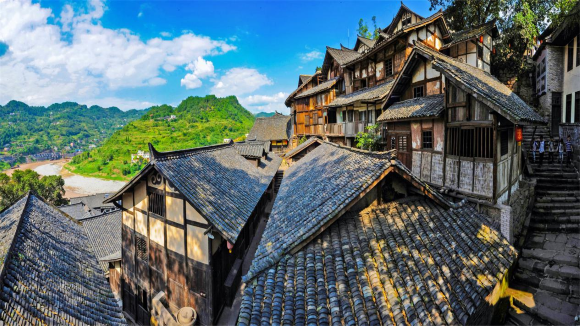
Luzhou Yaoba Zhen Gujianzhuqun.
Cultural Heritage
Yaoba is not just about buildings; it embodies the cultural essence of the region. The town hosts various traditional crafts, including the famous oil-paper umbrellas and local delicacies such as the renowned red soup lamb. Visitors can indulge in these culinary delights while exploring the vibrant local market scene.
Film and Literature Hub
This quaint town has also become a popular filming location, attracting filmmakers and photographers keen to capture its timeless beauty. The legacy of notable figures like the aesthetician Wang Chaowen and filmmaker Ling Zifeng is preserved in dedicated museums, offering deeper insights into their lives and contributions.
Natural Beauty
Surrounded by lush mountains and rivers, Yaoba presents a tranquil escape from the hustle and bustle of city life. The serene atmosphere is perfect for leisurely walks along its cobbled streets, where visitors can soak in the harmonious blend of nature and history.
Accessibility and Experience
Easily reachable from major cities like Luzhou and Hejiang, Yaoba Town is a fantastic day-trip destination. The town maintains a laid-back vibe, allowing travelers to immerse themselves fully in the local lifestyle. With free entry and a wealth of experiences to enjoy, it’s an ideal spot for those looking to explore the hidden gems of southwest China.
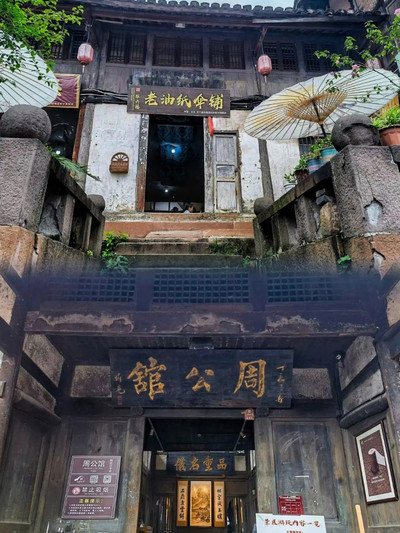
Luzhou Yaoba Zhen Gujianzhuqun.
In summary, Luzhou Yaoba Zhen Gujianzhuqun offers a rich historical narrative, stunning architecture, and a vibrant cultural experience that draws visitors from all walks of life. Whether you’re a history buff, a foodie, or simply in search of scenic beauty, Yaoba promises to leave a lasting impression.
Planning Your Visit: A Practical Guide
Practical Guide to Visiting Luzhou Yaoba Zhen Gujianzhuqun
Luzhou Yaoba Zhen Gujianzhuqun, or the Ancient Architecture Complex in Yaoba Town, is a hidden gem in Sichuan Province, offering visitors a unique glimpse into the region’s cultural heritage. Here’s everything you need to know for a rewarding visit.
Getting There
Yaoba Town is conveniently located at the junction of Sichuan, Guizhou, and Chongqing, making it easily accessible from several major cities:
- By Car: If you’re driving from Chengdu, expect a journey of approximately 3.5 hours (around 220 kilometers). Follow the G93 Chengyu Ring Expressway or the S308 Provincial Road to reach Yaoba.
- By Train and Bus: Take a high-speed train from Chengdu East Railway Station to Luzhou Station (about 1.5 hours), followed by a local bus or taxi to Yaoba Town, which is about 22 kilometers away.
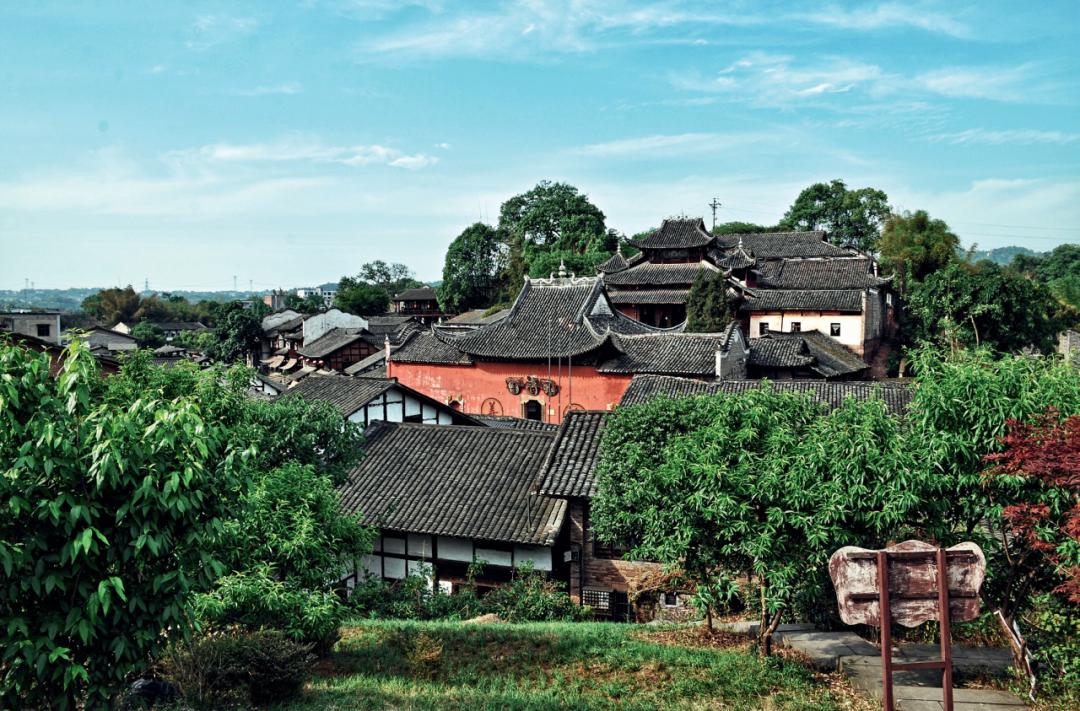
Luzhou Yaoba Zhen Gujianzhuqun.
Admission
Visiting Yaoba Town is free of charge, allowing you the opportunity to explore its rich history without any entrance fees. However, some specific attractions within the town may charge a small fee, so it’s advisable to check in advance.
Best Time to Visit
The ideal time to visit Yaoba is during the autumn and winter months (October to December), when the weather is mild, and the scenic beauty is enhanced by the seasonal changes. Spring can also be lovely, but it may attract more visitors.
What to See
-
Ancient Streets and Architecture: Stroll along the 1,000-meter-long ancient street lined with traditional Qing Dynasty-style buildings. The structures are well-preserved and showcase the unique architectural style of southern Sichuan, characterized by grey brick and blue tile roofs.
-
Wang Chaowen’s Former Residence: Explore the home of the famous aesthetician, which offers insights into the life of a significant figure in Chinese literature.
-
East岳 Temple (慈云寺): This temple, notable for its stunning architecture, is an excellent place for spiritual reflection and to admire intricate carvings and historical significance.
-
Lingzifeng Film Exhibition Hall: A tribute to the significant contributions of director Lingzifeng to Chinese cinema, this exhibit features memorabilia and information about his life and work.
-
Dahong Rice Shop (大鸿米店): Once a crucial hub for rice trade between Sichuan and Guizhou, this building now serves as a quaint tea house where you can relax and enjoy local brews.
-
Traditional Crafts: Don’t miss the oil-paper umbrella shop, where you can purchase handmade umbrellas that make for unique souvenirs.
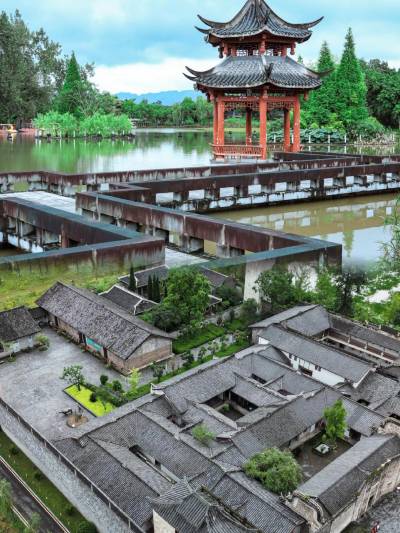
Luzhou Yaoba Zhen Gujianzhuqun.
Local Cuisine
Yaoba is renowned for its culinary delights, particularly:
- Red Soup Lamb: A local specialty, this dish features tender lamb simmered in a rich, flavorful broth. Be sure to try it at one of the local eateries.
- Yellow Rice Cake (黄粑): A sweet treat made from glutinous rice, perfect for those with a sweet tooth.
Tips for Your Visit
- Wear Comfortable Shoes: The cobblestone streets can be uneven, so ensure you have sturdy footwear for walking.
- Stay Hydrated: Bring a water bottle, especially if you plan to explore the town on foot.
- Respect Local Customs: Yaoba is a living town, so be mindful of residents and their daily activities.
- Take Your Time: The charm of Yaoba lies in its tranquility and rich history. Allow yourself to savor the sights and sounds.
Nearby Attractions
If you have extra time, consider visiting these nearby sites:
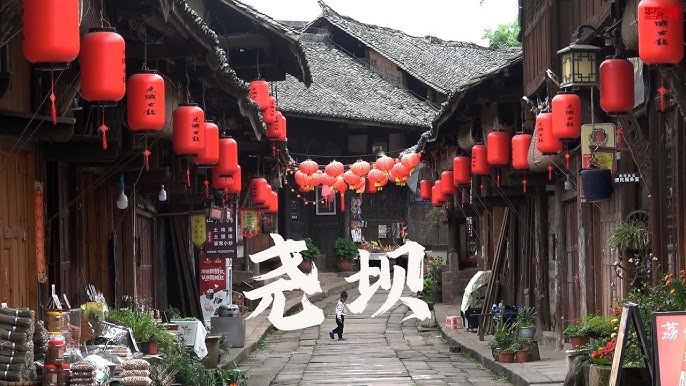
Luzhou Yaoba Zhen Gujianzhuqun.
- Baita (White Pagoda): An iconic structure in the area, it is a short distance from Yaoba and offers lovely views.
- Longjing Mountain Temple: Known for its beautiful surroundings and serene atmosphere, perfect for a relaxing day trip.
Visiting Luzhou Yaoba Zhen Gujianzhuqun offers a delightful blend of history, culture, and natural beauty, making it a worthwhile stop on your journey through Sichuan Province. Enjoy your exploration of this fascinating ancient town!
Tickets, Hours, and Booking
Visitors to the Luzhou Yaoba Zhen Gujianzhuqun (尧坝镇古建筑群) will be pleased to know that entrance to this historic site is completely free of charge. This allows travelers to immerse themselves in the rich cultural and architectural heritage of the ancient town without any financial barrier.
The ancient town, located in the scenic area of Sichuan province, is open to the public from 9:00 AM to 5:30 PM daily. Visitors are encouraged to arrive early in the day to fully explore the 1,000-meter-long ancient streets lined with beautifully preserved traditional architecture, much of which dates back to the Ming and Qing dynasties.
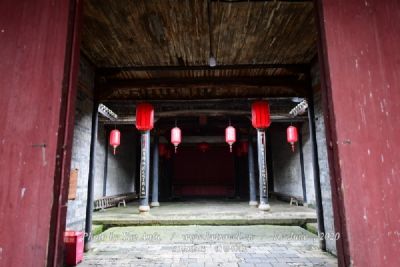
Luzhou Yaoba Zhen Gujianzhuqun.
While there is no admission fee, please note that certain smaller attractions within the town may have their own ticketing policies, so it’s advisable to check local information or inquire on-site if you plan to visit specific locations.
For those planning to visit, getting to Yaoba Ancient Town is convenient. It is located approximately 37 kilometers from the nearest city of Hejiang and about 22 kilometers from Luzhou, making it accessible by car or public transportation. Buses frequently run from Luzhou and Hejiang to the town, providing an easy travel option.
Take advantage of this opportunity to explore one of Sichuan’s hidden gems without the burden of entry fees, and enjoy the unique blend of history, culture, and serene landscapes that Yaoba has to offer.
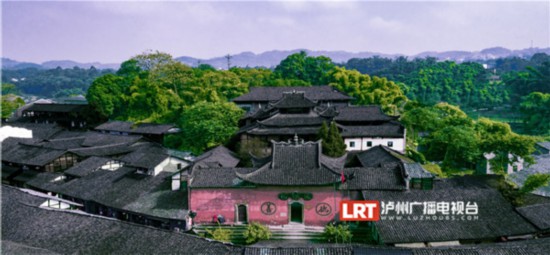
Luzhou Yaoba Zhen Gujianzhuqun.
How to Get There
Reaching Luzhou Yaoba Zhen Gujianzhuqun, a historical gem nestled in the scenic landscapes of Sichuan province, is a delightful journey that combines convenience with picturesque views, whether you’re coming from nearby cities or further afield.
By Car
For those driving, the route to Yaoba Ancient Town is quite straightforward. The town is located approximately 22 kilometers from the city of Luzhou and about 37 kilometers from Hejiang County. From Luzhou, you can take the G93 Chengyu Ring Expressway or the S308 provincial road, which leads you directly to the entrance of the town. The drive typically takes around 30-40 minutes, offering a chance to enjoy the beautiful countryside along the way. Ample parking is available near the ancient town, making it easy to stop and explore.
By Train
If you prefer public transport, you can travel to Luzhou by high-speed train from major cities such as Chengdu. The journey from Chengdu East Station to Luzhou Station takes about 1.5 hours. Once you arrive at Luzhou Station, you can take a taxi or a ride-sharing service to Yaoba Ancient Town, which is about a 30-minute drive away.
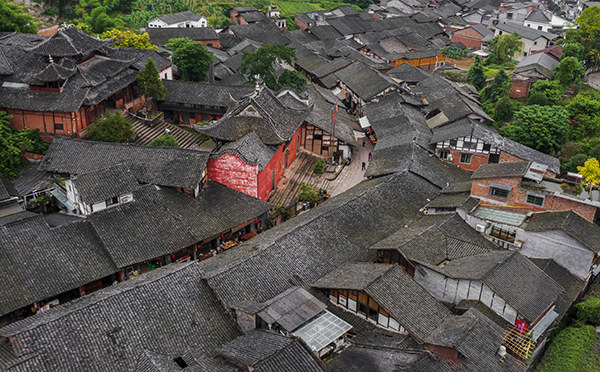
Luzhou Yaoba Zhen Gujianzhuqun.
By Bus
For budget travelers, there are also bus services available. From Luzhou’s main bus station, you can catch a direct bus to Hejiang, with frequent departures throughout the day. The bus journey takes approximately 50 minutes. Upon reaching Hejiang, local buses or taxis can take you the final stretch to Yaoba, which is about 15 kilometers away.
Local Transportation
Yaoba Ancient Town itself is compact and best explored on foot. The charming cobblestone streets and well-preserved traditional architecture make walking the ideal way to soak in the atmosphere. Feel free to wander around and discover hidden nooks, local shops, and eateries along the ancient streets. Bicycles can also be rented in the area for those looking to cover more ground while enjoying the surroundings at a leisurely pace.
Tips for Travelers
- Best Time to Visit: The ideal seasons to visit Yaoba are spring and autumn, when the weather is mild and the scenery is particularly beautiful.
- Language: While Mandarin is the official language, basic English may be understood in tourist-friendly areas. It’s helpful to learn a few phrases in Mandarin or have a translation app handy.
- Local Cuisine: Don’t miss trying local specialties such as the famous red soup lamb and handmade rice cakes available at various eateries within the town.
With its rich history and stunning architecture, Yaoba Ancient Town is a must-visit destination for anyone exploring the Sichuan province. Whether you arrive by car, train, or bus, the journey itself will enhance your experience of this quaint and culturally rich locale.
Local Cuisine and Accommodation
Nestled within the enchanting backdrop of Luzhou’s ancient architecture, Yaoba Ancient Town offers a delightful blend of culinary experiences and accommodation options that reflect the region’s rich cultural heritage.

Luzhou Yaoba Zhen Gujianzhuqun.
Culinary Delights
When it comes to food, Yaoba Ancient Town is a haven for those eager to savor authentic Sichuan flavors. Among the must-try dishes is the Red Soup Lamb, renowned for its tender meat simmered in a savory broth, is a local specialty that will leave your taste buds longing for more. Many small restaurants lining the ancient streets serve this dish, often paired with traditional sides like handmade Yellow Rice Cakes—sweet, chewy morsels made from glutinous rice and sugar.
Other local culinary gems include Tofu Flower Rice, a unique dish featuring silky tofu served over rice, and spicy options like Black Bean Flower Hotpot, which is sure to ignite your palate. Don’t forget to sample the region’s famous Luzhou rice wine, which complements the robust flavors of Sichuan cuisine beautifully.
For a more casual dining experience, the bustling market streets offer an array of street food vendors. Here, you can indulge in sizzling barbecued skewers and steamed buns, which provide a taste of daily life in this ancient town.
Where to Stay
For accommodation, visitors can find a range of options that blend comfort with traditional Chinese aesthetics. Yaoba Inn, located just a stone’s throw from the main attractions, offers cozy rooms adorned with local decor, ensuring a restful night after a day of exploration. The inn provides modern amenities while retaining the charm of an ancient setting, making it an ideal base for your adventures.
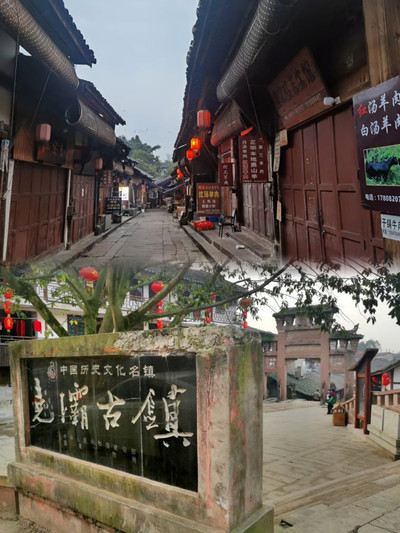
Luzhou Yaoba Zhen Gujianzhuqun.
Another commendable choice is the Baihe Hotel, which features spacious rooms with stunning views of the surrounding mountains and the ancient town. This hotel combines both luxury and tradition, providing guests with a taste of local hospitality.
For those seeking a more immersive experience, consider staying at a local guesthouse. These establishments offer a unique opportunity to interact with residents, learn about their daily lives, and enjoy homemade meals that highlight the region’s culinary traditions.
Whether you’re enjoying the local delicacies or finding a comfortable place to rest, Yaoba Ancient Town promises an unforgettable experience that captures the essence of Sichuan’s rich history and vibrant culture.
Frequently Asked Questions
Frequently Asked Questions about Luzhou Yaoba Zhen Gujianzhuqun
-
What is Luzhou Yaoba Zhen Gujianzhuqun?
Luzhou Yaoba Zhen Gujianzhuqun, also known as Yaoba Ancient Town, is a historical architectural complex located in the Luzhou region of Sichuan Province, China. This ancient town is renowned for its well-preserved structures, showcasing a blend of Ming and Qing architectural styles. -
How do I get to Yaoba Ancient Town?
Yaoba Ancient Town is conveniently located approximately 37 kilometers from Hejiang County and 22 kilometers from Luzhou city. Visitors can reach the town by car, which typically takes around 40 minutes from Luzhou. Public transportation options, including buses from local stations, are also available. -
Is there an entrance fee to visit Yaoba Ancient Town?
Entrance to Yaoba Ancient Town is free. However, some specific attractions within the town may have separate fees, so it’s advisable to check at each location. -
What are the must-see attractions in the ancient town?
Key attractions include the East Mountain Temple, Wang Chaowen’s Former Residence, Ling Zifeng Film Exhibition Hall, and the historic streets lined with traditional residences. The ancient architecture and local crafts, such as oil paper umbrellas, are also notable highlights. -
When is the best time to visit Yaoba Ancient Town?
The best time to visit is during the autumn and winter months (October to December) when the weather is pleasant, and the scenery is particularly beautiful. This period also coincides with local harvest festivals, enhancing the cultural experience. -
What local dishes should I try while in Yaoba?
While visiting Yaoba Ancient Town, don’t miss trying the local specialties such as Red Soup Lamb, a flavorful dish that’s popular among visitors. Other culinary delights include handmade rice cakes and various Sichuan snacks available at local eateries. -
Are there accommodations available near Yaoba Ancient Town?
While there are limited accommodations directly within the ancient town, visitors can find hotels and guesthouses in nearby Luzhou and Hejiang. Staying in these areas provides easy access to the town and its attractions. -
What cultural experiences can I enjoy in Yaoba Ancient Town?
Yaoba Ancient Town offers a rich cultural experience, including traditional architecture, local festivals, and opportunities to engage with residents about their customs and daily life. Visitors can also participate in tea ceremonies and view local arts and crafts, providing a deeper understanding of the region’s heritage.
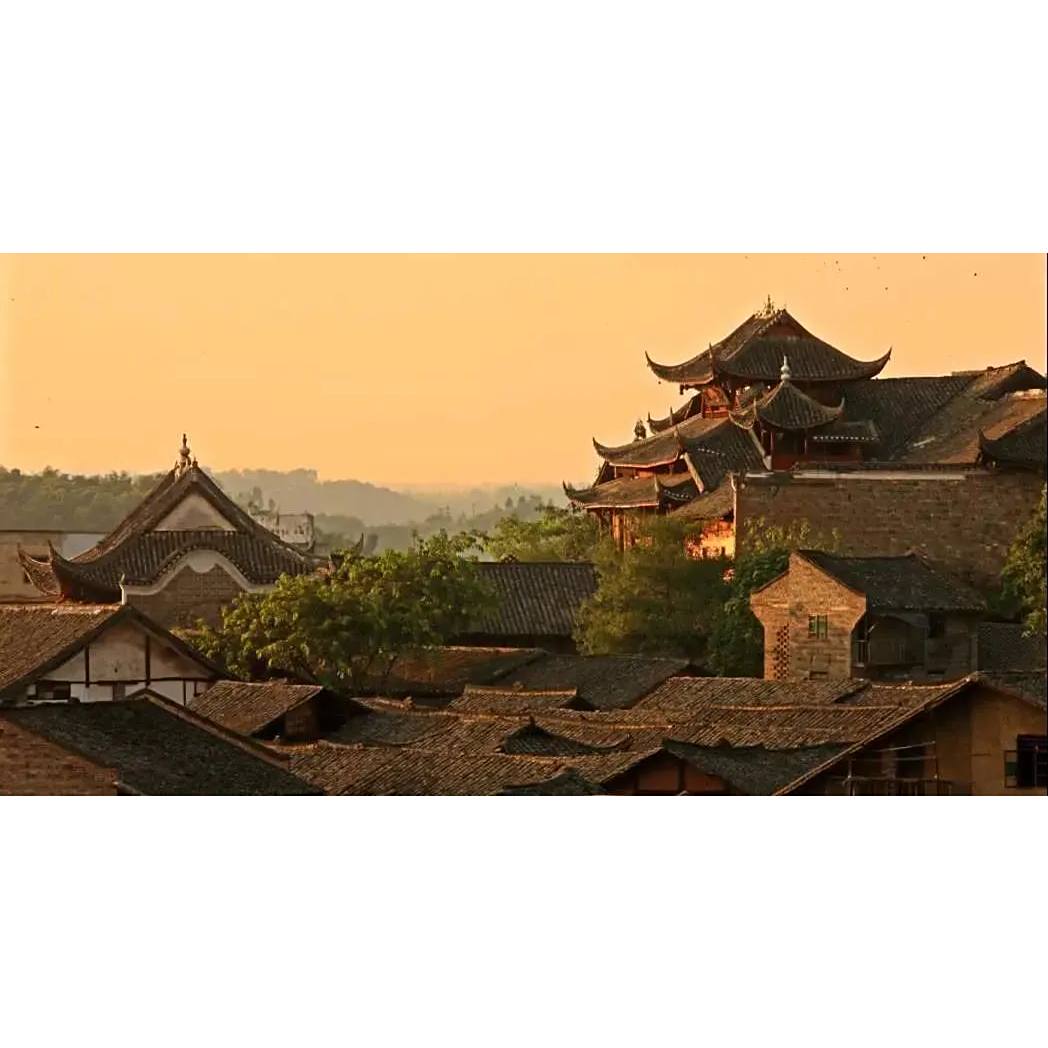
Luzhou Yaoba Zhen Gujianzhuqun.
Final Thoughts on Your Trip
Visiting Luzhou Yaoba Zhen Gujianzhuqun offers travelers a unique glimpse into the rich tapestry of Chinese history, culture, and architecture. Nestled at the crossroads of Sichuan, Guizhou, and Chongqing, this ancient town stands as a testament to the region’s vibrant heritage and enduring charm. The well-preserved buildings, with their intricate designs and historical significance, transport visitors back in time, revealing stories of merchants, travelers, and local traditions that have shaped this area for centuries.
As you stroll along the ancient cobblestone streets, savor local delicacies like the famous red soup lamb, and immerse yourself in the tranquil ambiance, you will find that Yaoba is not just a destination but an experience that connects you to a bygone era. The town’s serene environment and friendly locals foster a sense of community and belonging, making it a perfect getaway from the hustle and bustle of modern life.
Whether you are an architecture enthusiast, a history buff, or simply seeking a peaceful retreat, Yaoba Zhen invites you to explore its treasures. Embrace the stories that whisper from its walls, relish the flavors that linger in the air, and let the beauty of this ancient town inspire your journey through time.
